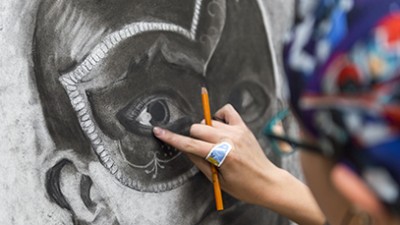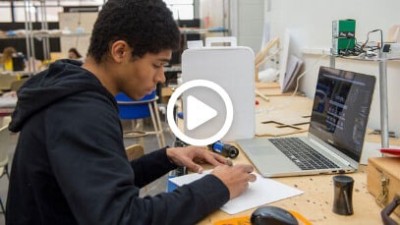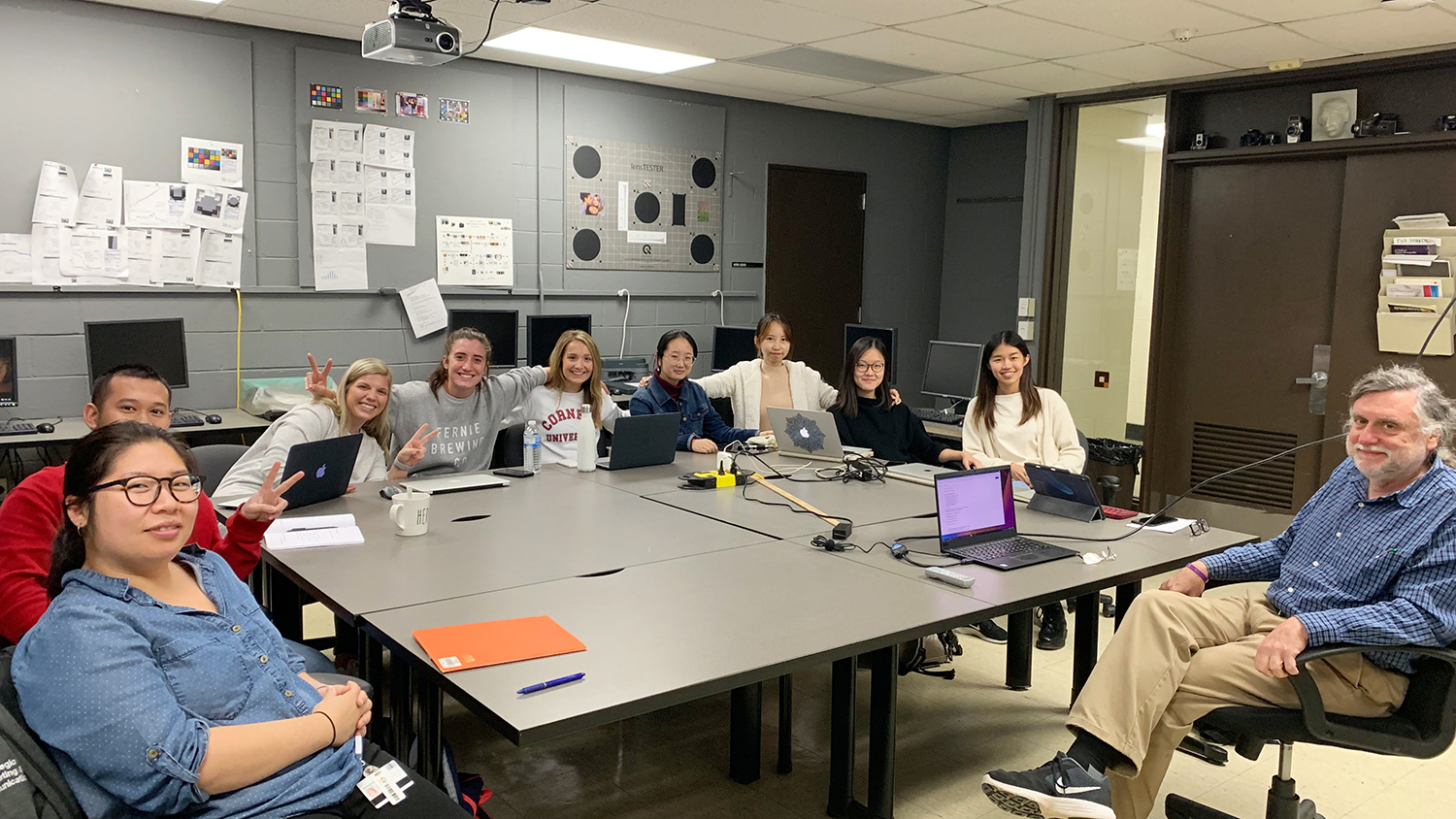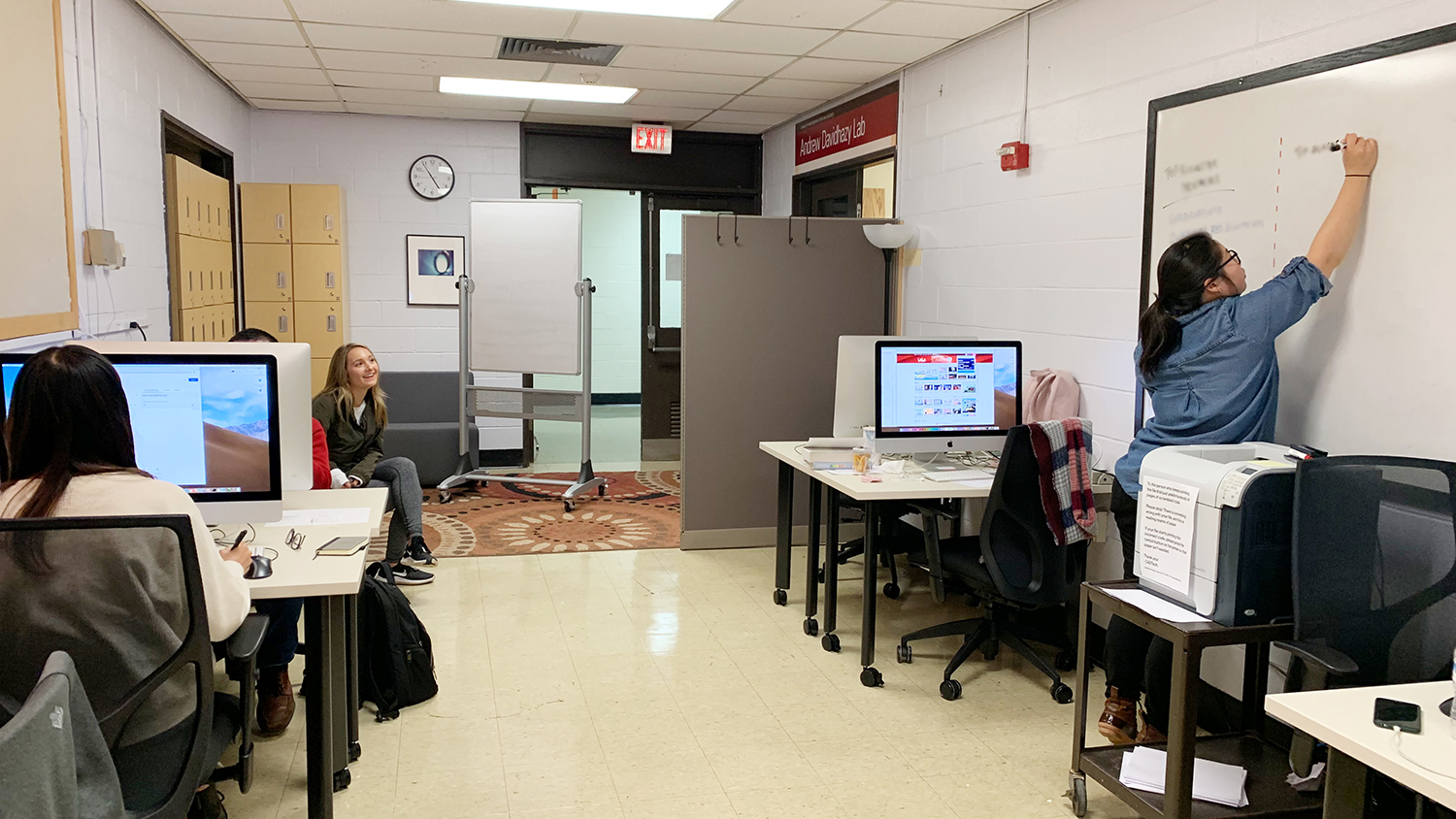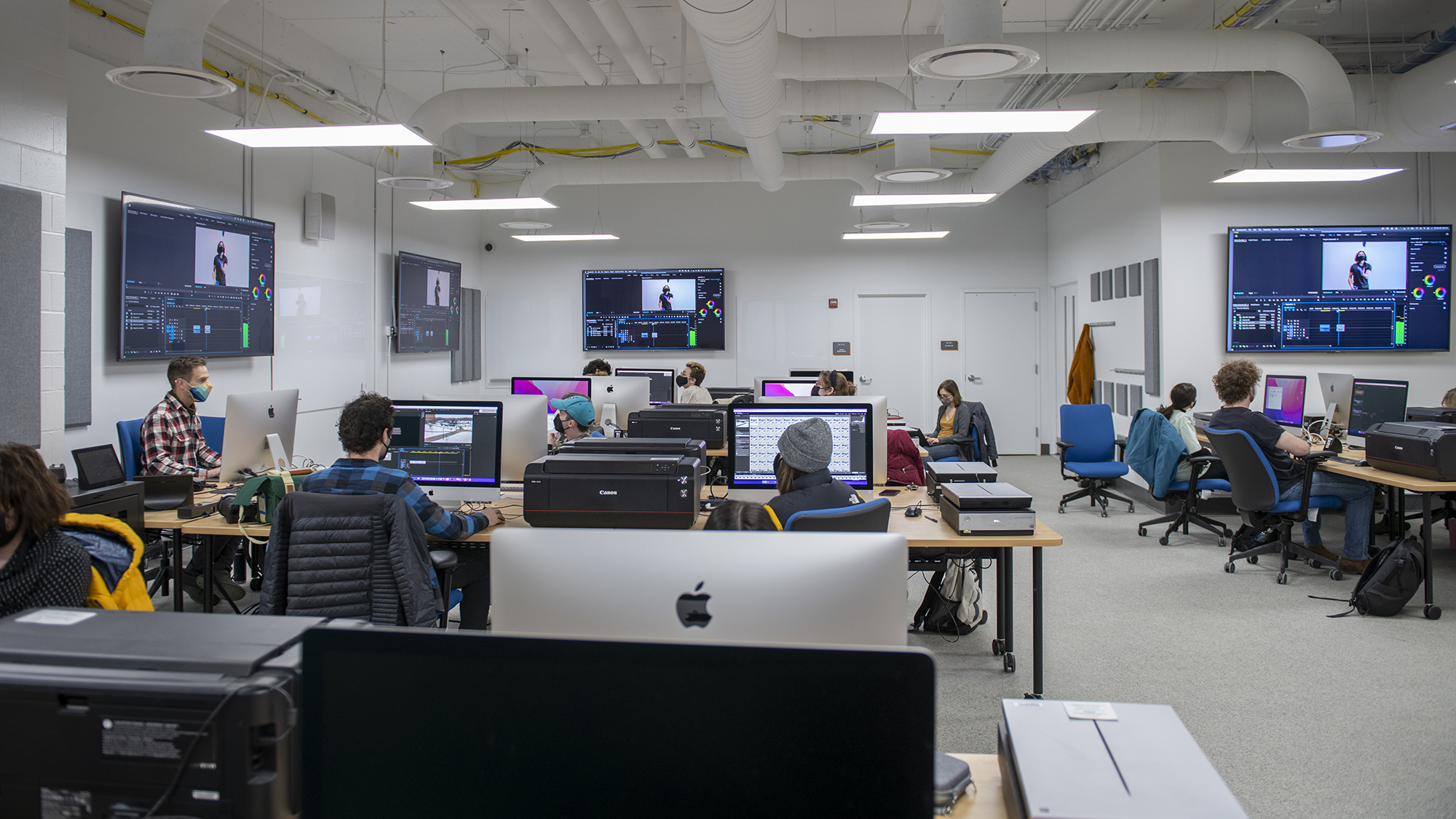Media Arts and Technology Master of Science Degree
- RIT /
- College of Art and Design /
- Academics /
- Media Arts and Technology MS
This one-year, accelerated media master's degree deepens your understanding of the importance of graphic communication and immerses you in the digital media technologies that are changing the industry.
Overview for Media Arts and Technology MS
This program is no longer accepting new student applications.
Students interested in course work in this area are encouraged to learn more about courses being offered this fall.
Digital communication and media are increasingly important to our lives. Today’s organizations need professionals who understand the value of information design and recognize the many ways it can be used to positively impact the bottom line. The media arts and technology MS degree is designed to provide you with the skills and knowledge to understand how communication and media are evolving, how to apply them in meaningful and creative ways, and gain practical experience through hands-on projects and workshops.
A Media Arts and Technology Degree Designed for Today’s Digital Environment
Media arts and technology is a one-year media master's degree in which you will develop relevant knowledge and skills with a technical emphasis and a business-oriented approach. You will learn to recognize new ways of operating and identifying emerging technologies to meet and exceed evolving market demands and become a leader in the improvements of cross-media products and processes. The program provides you with the ability to create meaningful and measurable changes in graphic communications through applied cross-media initiatives. The MS in media arts and technology requires a capstone project that allows you to develop and demonstrate in-depth knowledge in a specific topic area. Led by senior faculty, the capstone project is designed to prepare you to showcase your knowledge of innovation in today’s rapidly evolving media landscape.
Media Arts and Technology Courses
The media arts and technology degree includes a curriculum that concentrates on the latest digital technologies, processes, and strategies that allow you to employ a deep knowledge of print, web, mobile, and social media workflows to solve communication problems. You will:
- Understand the creation, workflow, and output of digital media files, using a range of media devices, including digital cameras, smartphones, 2D/3D scanners, and audio and video recording devices
- Gain an overview of critical trends and issues related to the graphic communications and imaging industries
- Explore and understand digital asset and content management
- Learn concepts in project management as they apply to leading cross-media projects and teams
- Examine how media has evolved and how it has responded to changes in digital technology and social habits
Elective courses enable you to explore additional areas of interest in graphic communication, media arts and sciences, and digital technologies. The diverse expertise of our faculty assures a breadth of relevant experience on issues and trends across the graphic communications field. The program aims to create a collaborative environment where you will combine coursework with access to faculty expertise, staff support, and extensive facilities to extend your current knowledge base.
As part of RIT’s media arts and technology master’s degree, you'll complete a capstone project, which enables you to design, develop, and demonstrate your extensive knowledge in a specific topic related to graphic communications. You’ll complete original work through experiments, comprehensive case studies, surveys, focus groups, and research analysis. Outcomes from the capstone experience result in tangible solutions, such as the innovation of a process, recognizing unmet customer needs, solving cross-media issues, or identifying resources required for business transformation or media solutions.
Curriculum for 2024-2025 for Media Arts and Technology MS
Current Students: See Curriculum Requirements
Media Arts and Technology, MS degree, typical course sequence
| Course | Sem. Cr. Hrs. | |
|---|---|---|
| First Year | ||
| PHMS-611 | Media Foundations: The Digital File |
3 |
This course will investigate the creation, workflow and output of digital media files, using a variety of capture devices including digital cameras, smartphones, 2D/3D scanners, audio and video recording devices. Course content will focus on device preferences, file attributes, workflow, output, compression with consideration of data management using different media. Hands-on exercises reinforce concepts such as: file types, data compression, color management, media delivery, and distribution. Students will evaluate the influences of operator choices at each stage along the image chain. Special attention will be given to identifying and cultivating industry best practices. At the conclusion of the course, students will be able to create optimized files using a variety of devices that include metadata construction. Lecture 3 (Fall). | ||
| PHMS-623 | Leadership in Creative Spaces |
3 |
This course is designed for students from a variety of educational backgrounds, and will explore leadership skills required in collaborative, contemporary, and dynamic professional environments. Course content will cover the intersection and divergence of management and leadership concepts using large group discussions, small group activities, and self-reflective exercises. Students will identify their own personal leadership strengths and goals and develop management strategies used in modern business environments. Students will also incorporate ways to succeed in progressively challenging roles and learn methods for fostering inclusive environments. At the completion of this course, students will be able to leverage their personal and professional networks to create a diverse community of peers and collaborative partnerships that will lead to innovative work. (This course is restricted to MEDART-MS Major students.) Lecture 3 (Spring). | ||
| PHMS-711 | Industry Issues, Trends, and Opportunities |
3 |
This course will present a detailed overview of critical trends and issues related to the graphic communications and imaging industries. It will provide an in-depth analysis of key technologies with a special emphasis on emerging, disruptive innovations as well as business, environmental and regulatory issues. The course content will emphasize cultural, economic, and technological trends and is intended to provide students with industry accepted methods used to identify changes in the industry. By tracing historical roots, analyzing present issues and detailing future trends, students will be prepared to develop insights into the nature and scope of the challenges and opportunities facing industry leaders and how to manage these challenges. As a part of the experience, students will develop sharply focused analytical skills and the ability to summarize findings based on industry normals. Lecture 3 (Fall). | ||
| PHMS-721 | Implementing Imaging Business Change |
3 |
This course will provide students with the knowledge required to improve an imaging or graphic communications business. Students will gain an understanding of the business assessment process and decision-making skills required for implementing change in the graphic communications and imaging industries. At the completion of this course, students will learn how to evaluate a firm’s economic, operational, and market positions and apply practical solutions that improve business practices. (This course is restricted to MEDART-MS Major students.) Lecture 3 (Fall). | ||
| PHMS-731 | Digital Content Management |
3 |
This course will explore the subject of digital asset and content management. Course exercises will investigate the organization of digital media and optimized architecture of storage systems. Students will learn how to manage and optimize digital content efficiently in various traditional and emerging applications. At the completion of this course, students will be able to articulate, analyze, and apply digital content solutions in various business and workflow models in media organizations. (This course is restricted to MEDART-MS Major students.) Lab 3, Lecture 2 (Fall). | ||
| PHMS-743 | Contemporary Media and Communications |
3 |
This course will examine how media has evolved and how it has responded to changes in technology and social habits. Course content will cover various forms of media communication using both historical and contemporary perspectives. Topics include: trend recognition, monetization in media communications, materials, processes, audience, usability, accessibility, aesthetics, content, typography, copyright issues, and innovations in publishing. At the completion of this course, students will gain an understanding of various media structures and communication types through the analysis of audience and content. (This course is restricted to MEDART-MS Major students.) Lecture 3 (Fall). | ||
| PHMS-746 | Capstone I |
3 |
This is the first of two courses designed to advance a student towards completion of their capstone. This course will guide students from their capstone proposal toward the completion of a capstone project. Students will learn project management skills required to successfully propose and begin a meaningful, relevant and feasible capstone project. Lecture 3 (Fall). | ||
| PHMS-747 | Capstone II |
3 |
This is the second of two courses designed to advance a student towards completion of their capstone. This course will guide students from their capstone proposal through the completion of a meaningful and significant capstone project. Projects can either be research oriented or developmental and must include implementation and dissemination of the project using appropriate distribution technology. (Prerequisites: PHMS-746 or equivalent course.) Lecture 3 (Spring). | ||
| PPRT-703 | Cross Media Workflow |
3 |
This course is designed to expose students to all the elements needed to execute media projects across platforms. Students will learn concepts in project management as it applies to leading cross media projects and teams. Concepts and tools necessary for the implementation of a cross media workflow will be discussed and reinforced with hands-on exercises. Additionally, content management and industry standards and practices such as color management, asset management, and image optimization for output will be studied and applied through the context of cross media workflows. Lab 2, Lecture 2 (Spring). | ||
Open Elective |
3 | |
| Total Semester Credit Hours | 30 |
|


